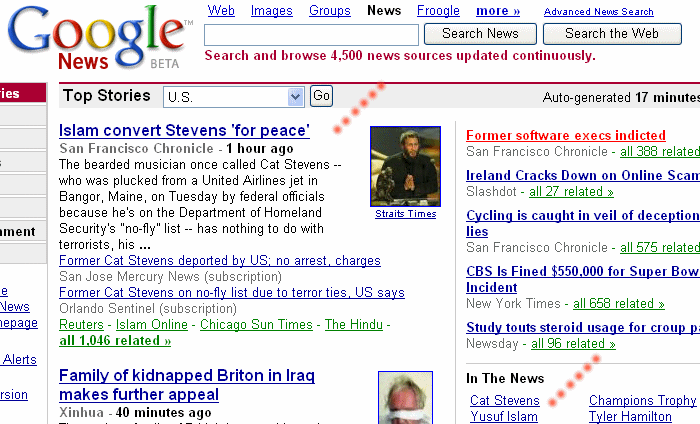Today I glanced at the Sponsored Links served up for a very short message I'd sent, and I was surprised to see that they all related to physics.

Odd; my message had nothing to do with physics, and didn't have any terms related to physics.
I tried Googling the recipients' names, and discovered that apparently one of my correspondents shares a surname, Thorsen, with a number of prominent physicists. (Is there some Thorsen physics dynasty out there?)
It's hard to imagine how the name of a recipient is
ever a good clue as to what products I might buy.
Related curiosity: I clicked on that New York Times ad, promoting the paper as a great resource for physics students and faculty at universities. But if you follow the link, you're just dumped on a page touting The Times generally. Clue: a pitch promising things to a specific audience needs to follow through with a targeted ad.
Time to tweak the algorithm, Googleguys...


 Odd; my message had nothing to do with physics, and didn't have any terms related to physics.
Odd; my message had nothing to do with physics, and didn't have any terms related to physics.

